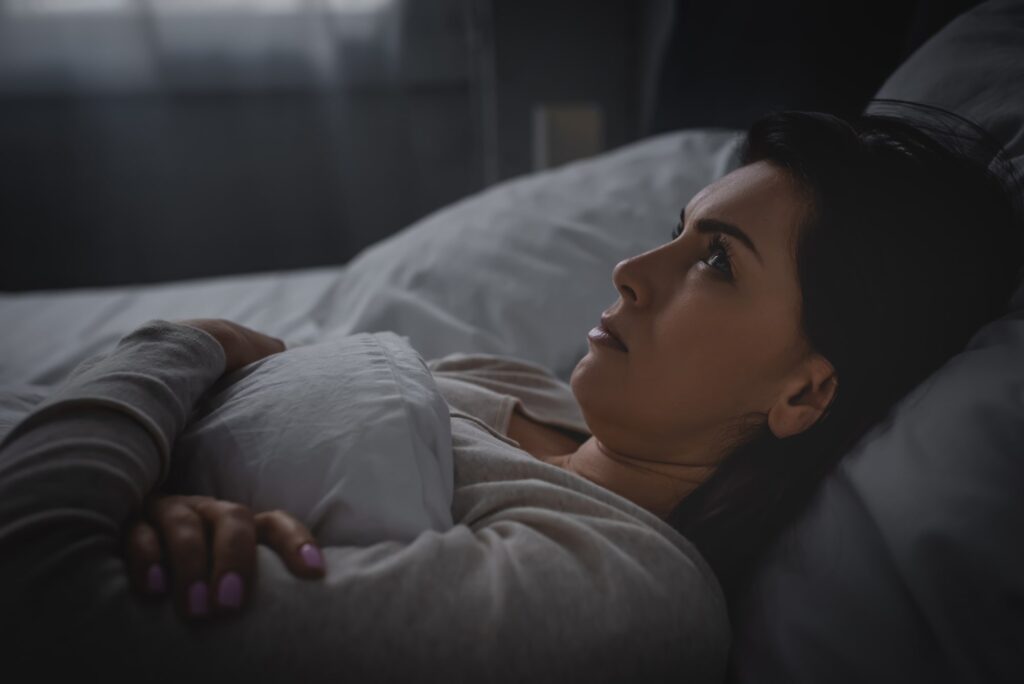Why sleep during times of stress is vital
If you’re feeling stressed one of the best things you can do is to focus on getting more sleep. But how can you do this?

How sleep and stress are linked
Did you know that sleep and stress are very closely linked? Stress (whether acute or chronic) can interfere with the quality and duration of your sleep.
When we are stressed our levels of cortisol rise. Cortisol is a hormone that causes us to be alert, which in turn raises our heart rate and blood pressure. Usually, cortisol levels drop at night to help us prepare for sleep. However, high cortisol levels interfere with the release of melatonin — another hormone that is responsible for regulating sleep-wake cycles. This in turn can make it more difficult to fall asleep, prevent you from sleeping deeply and from staying asleep.
On the flip side, sleep deprivation can increase stress and cortisol levels even further. This may lead to a vicious circle of stress, poor sleep, more stress, and even poorer sleep.
Sometimes it can be hard to know how to get out of this cycle. However, improving your sleep is one step you can take.
How sleep helps reduce stress
Having a regular sleep routine is one of the best things you can do to reduce stress or help you cope better with it. Good sleep calms your mind, improves concentration, helps regulate your mood and improves judgement and decision-making — all of which will help you navigate stress and help you cope during the day. Sleep also reduces anxiety and depression by healing your nervous system which helps reduce the likelihood of emotional sensitivity and irrationality.
How to improve sleep during times of stress
Address the reason for your stress
Working out what is causing you to feel stressed and dealing with that will reduce stress levels enormously.
Write down worries and to-do-lists before bed
Use a pen and paper to write down all the things that are worrying you before you go to bed. This brain dump will help prevent you from going over them in your head while trying to fall asleep.
Avoid using alcohol and other drugs to cope
Many people turn to alcohol or other drugs to help them through stressful times, but these only make it harder to sleep.
Develop a good bedtime routine
Having a regular bedtime routine helps prepare your body for sleep and may help you sleep better. Things you may like to do include putting away electronics at least an hour before bedtime, reading, taking a bath, listening to music, drinking herbal tea or meditating.
Have the right environment
If you want to get a good night’s sleep, your sleep environment must be suitable. Your room should be dark, quiet and at a comfortable temperature. You should also make sure your mattress and pillow are both supportive and comfortable.
At BedGuard we have a range of supportive, comfortable, waterproof mattresses to suit everyone in the family. Browse online or come in-store to find out more.
Seek professional help
Of course, if you continue to experience high stress and poor sleep, visit your healthcare professional.





